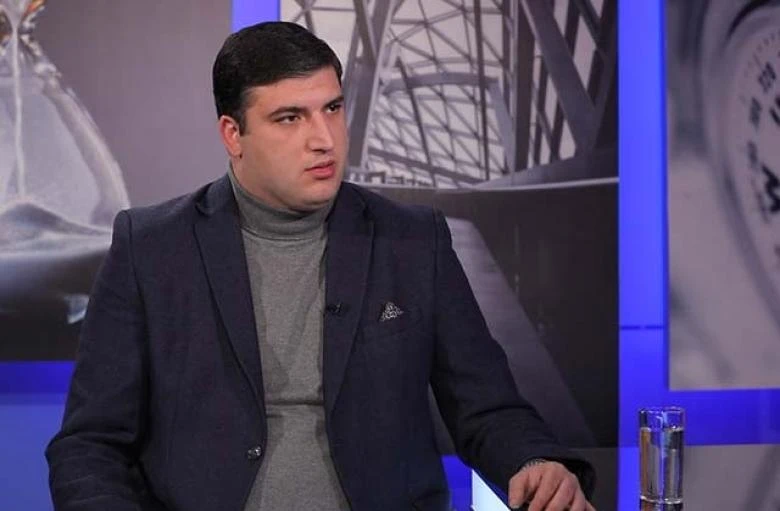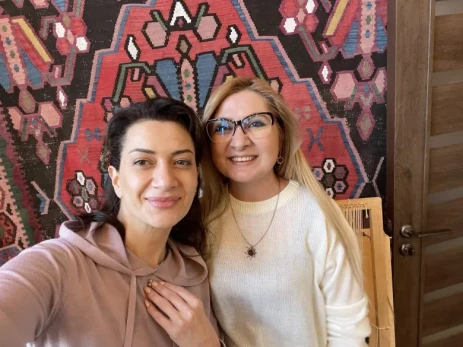Henrikh Mkhitaryan writes:
"The holding of COP29 in Azerbaijan and the specific dangers arising from it for Armenia.
1. Strengthening the international reputation of Azerbaijan. The holding of COP29 will give Azerbaijan an opportunity to present itself as a "green" economy leader before the international community. This may hinder Armenia's efforts to expose Azerbaijan's human rights violations and aggressive policies to the world, especially in the Nagorno Karabakh issue.
2. Eastern European countries' support to Azerbaijan. The unanimous support shown by Eastern European countries to Azerbaijan regarding the COP29 venue, especially after the recent military operations, can be interpreted as international support for the Azerbaijani policy. This weakens Armenia's diplomatic position, making it difficult for the country to advance its own interests, as well as protect Armenian cultural and historical heritage.
3. Increasing the economic potential of Azerbaijan. The reception of tens of thousands of international guests will bring significant economic results to Azerbaijan, strengthening its tourist and investment attractiveness.
4. Information superiority and propaganda advantage. COP29 will provide Azerbaijan with an international platform to widely present its propaganda and shape global public opinion around its positions. This circumstance can lead to an information vacuum, as a result of which Armenian positions and problems will be pushed out of the center of international attention.
5. Strengthening the "green" image against the background of conflicts. Azerbaijan is trying to position itself as a leader in ecological development by announcing the creation of "green" zones in the liberated territories. Such steps can be used as a justification for its political actions in Artsakh, presenting the country as a peace-loving and ecologically oriented state, despite its terrorist methods.
6. Danger of Armenia's diplomatic isolation. The holding of COP29 in Azerbaijan and the recognition gained as a result of it on the international stage can deepen Armenia's diplomatic isolation. This can significantly reduce Armenia's ability to present its issues and gain support at international platforms. These factors pose a serious challenge to Armenia, jeopardizing its position and limiting its ability to defend its interests in the international arena. Here are the steps Armenia could take: to prevent COP29 from being held in Azerbaijan.
1. Active diplomatic campaign. Armenia could carry out active diplomatic activities in the United Nations and the Eastern European Group, justifying why the holding of COP29 in Azerbaijan is unacceptable. By addressing security threats and human rights violations, Armenia could secure the support of other countries and draw public attention to its rationale.
2. Cooperation with human rights and non-governmental organizations. Armenia could draw the attention of international human rights organizations, such as Amnesty International and Human Rights Watch, to Azerbaijan's aggressive policy and human rights violations. Publication of such reports and media coverage could put pressure on the UN and conference organizers.
3. Media campaign against the holding of the conference in Baku. Cooperation with international media platforms, social networks and influential Western periodicals would help Armenia present an alternative point of view, showing Azerbaijan as a state that violates international norms. This could force other countries to reconsider the expediency of holding such an important event in Azerbaijan.
4. Pointing out violations of ecological norms. Armenia could show that Azerbaijan damages the environment of the region, which contradicts the purpose of holding a "green" event. For example, the consequences of oil extraction and mine exploitation, as well as the damage done to the Karabakh ecosystem, could be convincing arguments.
5. Participation in the initiatives of international ecological organizations. Armenia could be more actively involved in such initiatives as the United Nations Environment Program (UNEP) and the Global Environment Facility (GEF), promoting its own "green" programs. Participation in such programs and support of large projects would help Armenia gain additional authority and receive the support of other countries for the relocation of COP29.
6. Appeal to the support of influential countries. Armenia could appeal to countries influential in the climate agenda, for example, the EU, the USA, Russia, urging them to support the decision to move COP29 to a more neutral and convenient place.
7. Creation of regional alliances. In case of common interests, Armenia could cooperate with other countries, creating a regional alliance that would support the relocation of COP29. For example, Armenia could turn to those states that are also concerned about Azerbaijan's regional influence to combine efforts.
8. Raising the issue of prisoners of war. Armenia could draw the attention of the international community to the issue of the continued detention of Armenian prisoners of war by the Azerbaijani authorities, which violates international norms and human rights.
Armenia could emphasize that Azerbaijan, despite its humanitarian obligations, continues to hold Armenian prisoners of war in Baku, raising serious humanitarian and ethical issues. Holding COP29 in a country that ignores international humanitarian norms could be presented as an unacceptable step that could be perceived as tacit support for Azerbaijan's actions and human rights violations. These steps would help Armenia increase its chances of preventing COP29 from being held in Azerbaijan by amending the decision and providing international support. Of course, if Serzh Sargsyan continued to rule Armenia, we would have a free Artsakh, a strong army, and we would be a question-begging factor in the region, instead of becoming a geopolitical coin. I especially want to note that if the third president of Armenia, Serzh Sargsyan, was in power today, COP29 would be held in Armenia, and Azerbaijan would be deprived of all opportunities for diplomatic strikes.
A vivid proof of this is Aliyev's statement in 2016 that he is being forced to recognize Artsakh's independence, and Turkish President Erdogan's joining the Minsk Group statement, which contained criticism of Azerbaijan and other diplomatic and military successes."


